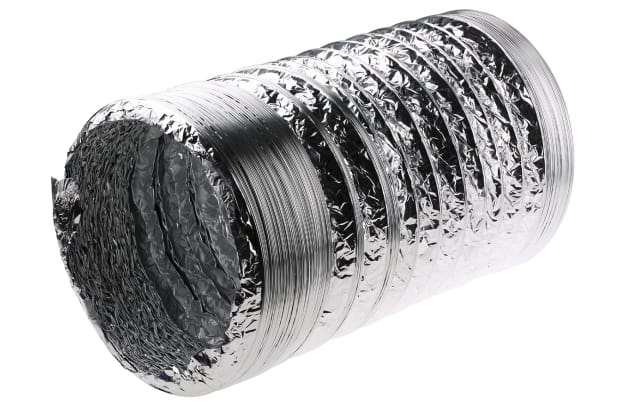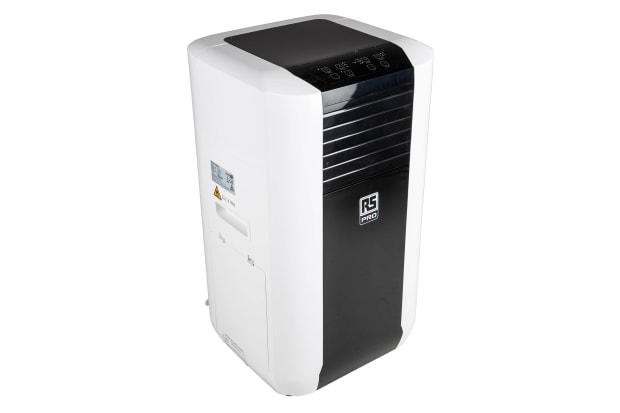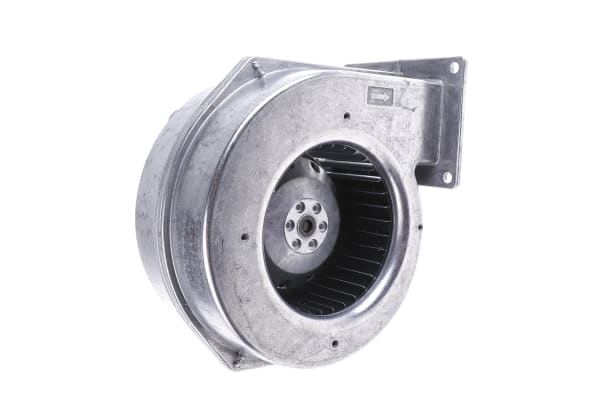- Published 12 Jun 2023
- Last Modified 27 Nov 2023
- 5 min
What is HVAC?
What does HVAC stand for and how do these units work?

Reviewed by Karl Ralph, Technical Support Engineer (January 2023)
HVAC stands for heating, ventilation and air conditioning. They are systems designed to have both abilities of heating and cooling a room, whether that be in a commercial or home setting.
What is an HVAC System?

Heating, ventilation, and air conditioning units are a combination of separate systems that control air temperature and ventilation in conjunction with each other. Typically, this will consist of air vents, a heating system, and a cooling system. Often these are packaged into one complete system that’s often referred to as HVAC.
Not only do HVAC systems ventilate, warm and cool; but some units remove dust and bacteria from the area, providing a healthier environment to be in. HVAC systems can also be used on small and large scales, from a single room or larger systems for ventilating an entire building.
They are mostly used in commercial and industrial settings and are a great option if you want a control system that heats, cools, and ventilates all in one, that is also easy to operate in a large area.
How HVAC Systems Work
In their simplest function, HVAC systems work on the principle of circulating air from outside to inside, whilst heating or cooling the air in the process (depending on whether you want the room to be warmer or colder).
When heating an area, the HVAC system will make use of the property boiler, air sources and other heat sources, to transfer that heat from one area to another. The heat source will create the heat, and the HVAC distributes it. This can be done with a furnace, in which heat is either produced through electrical energy or through burning fuel. The HVAC system can also heat a room by moving the heat from an outdoor heat source to indoors, via a heat pump.
Types of HVAC
- Heating and air conditioning system split - an air conditioner placed outside of a building - with ducts and heating within the building
- Hybrid system split - a combination of air conditioning and heating as above, but with the ability to switch between gas and electric power
- Duct-free system split - individual units in each room, which provides more flexibility to control room temperature. However, comes with a higher cost for fitting
What is the Difference Between AC and HVAC?

Simply put, an AC unit is for cooling air only, a HVAC unit pushes air outside and functions as a heating device.
When functioning as an air conditioning unit, an HVAC system will contain refrigerant gas that will be compressed in an outside unit. Once the refrigerant is in liquid form it is then passed through a condenser, which allows the liquid to cool and be converted back into a gas, where it then absorbs the heat from the room/building’s air. The refrigerant, now hot from heat absorption, then returns to the outside unit to start the process again.
Regarding ventilation, this process occurs naturally in conjunction with either heating or cooling a room.
What Equipment is in HVAC Systems?
HVAC systems have several pieces of equipment that ensure optimum functionality, the first of these being refrigerant. As mentioned previously, a refrigerant is a vital part of air conditioning and heating and plays a big part in the role of redistributing heat in an area. In the winter it will move heat from outside in, and in the summer will do the reverse.
Another part of an HVAC system is the evaporator coils. These are the coils that hold the indoor heat. The refrigerant passes over them and absorbs this heat, allowing for a cool room. The dispersal of the heat/cool air is allowed through the HVAC’s ducts and vents. These are the piping or network that allow air to move throughout the area you’re in and be distributed through the vents. Vents are usually rectangular openings that can be seen on room walls or ceilings.
Compressors also feature in HVAC systems and are used to help cool refrigerant liquid, as well as push out hot air from rooms or buildings. These can sometimes be seen present outside of office buildings and look like square vented blocks in the ground.
Other equipment that is essential to the function of an HVAC system includes thermostats and blowers. Thermostats work in conjunction with your HVAC system, to set the desired temperature of the area in question. When that temperature is set and achieved, the blowers are the machinery that helps push the air through your room or building.
Why is Having an Effective HVAC System Important?
With all this in mind, why is an HVAC so important? Well, there are many benefits to a well-functioning HVAC system. The most obvious reason is comfort. Because an HVAC system can both cool or heat an environment, depending on need, they allow you to work or dwell in a comfortable temperature whatever the environment.
An all-in-one system for temperature control means that you are not working between two separate systems to try and achieve an optimum room temperature. Plus, because HVAC systems work on ventilation, the heated or cooled air in the room is healthy and fresh, meaning fewer bacteria and a more oxygenated environment.
HVAC systems are also environmentally friendly. More modern machines have smart controls that allow you to set timers and schedules for when you want to cool or heat a room. This means that energy is not being wasted, and you are also able to keep better track of how much energy is being consumed during usage. Also, because of the ability to track and manage energy usage, you/the business are also able to save money on energy, making HVACs more economically efficient.
Finally, HVAC systems have a long lifespan. Once installed, not only do they perform multiple functions, but they do so effectively for a longer lifespan, meaning that your return on investment is greater.


